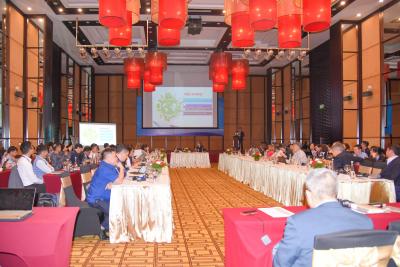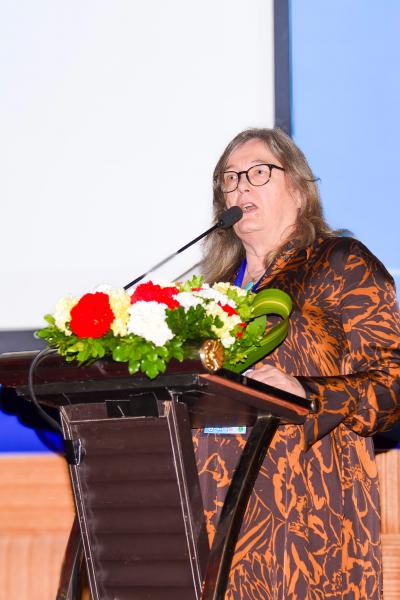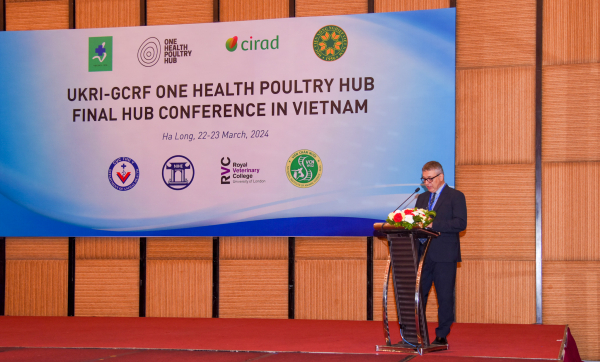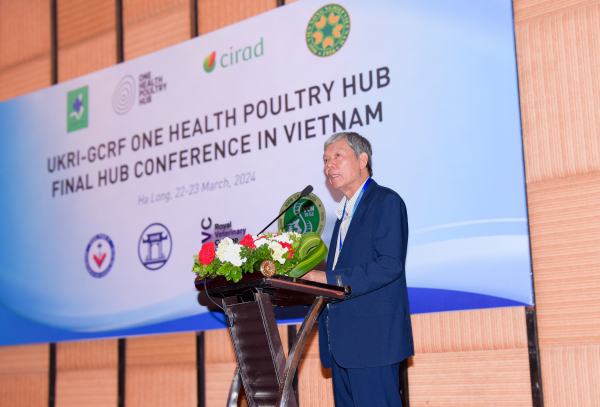- Home
- Worldwide
- Our regional offices
- Continental Southeast Asia
- News : Continental Southeast Asia
- One Health Poultry Hub conference
The One Health Poultry Hub conference shares insights on poultry farming in Vietnam
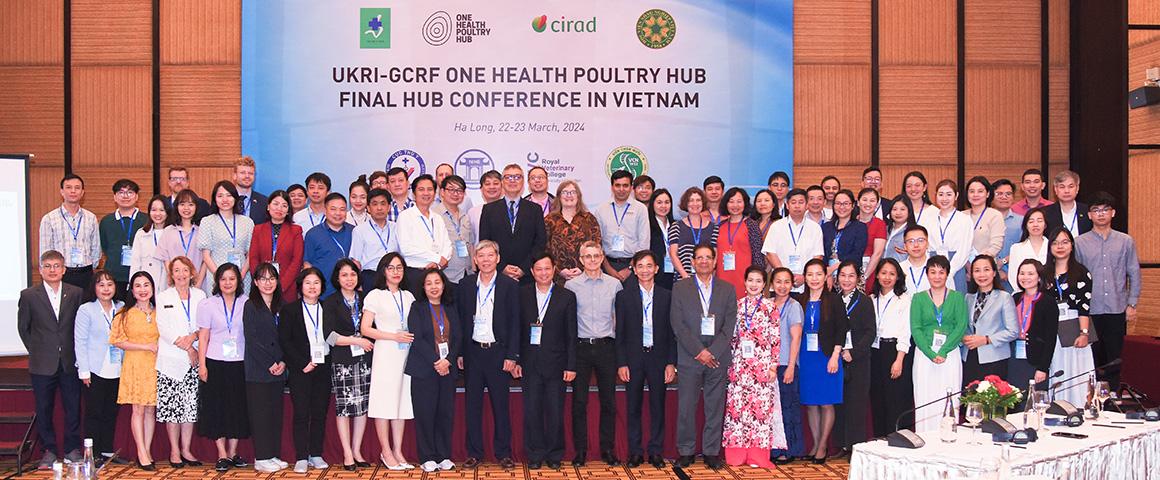
The One Health Poultry Hub final conference gathered diverse stakeholders from local and international organizations and governmental bodies, as well as representatives from the private sectors. © N. Tran, Animal Husbandry Association of Vietnam (AHAV)
On 22-23 March 2024, the One Health Poultry Hub (OHPH) concluded its multi-year project with a final conference in Halong City, Vietnam. The conference gathered OHPH members, governmental and international organizations, universities, local governments, and the private sector working on the dual challenge of meeting the rising demand for poultry products in developing countries while minimizing public health risks. The project's research spanned Vietnam, Bangladesh, India, and Sri Lanka.
A comprehensive effort through research, collaboration, and the implementation of One Health strategies
The conference started with a workshop on slaughtering practices, where Vietnamese provinces shared insights on pathogen prevalence and slaughterhouse improvements.
The second day of the One Health Poultry Hub conference featured presentations on avian influenza epidemiology, antimicrobial resistance, and socio-economic factors of poultry production, highlighting the interdisciplinary nature of the One Health approach.
Key participants included OHPH partners and governmental bodies such as Department of Animal Health (DAH), Ministry of Health (MOH), Ministry of Natural Resources and Environment (MONRE), and the Ministry of Agriculture and Rural Development (MARD). Also present were international organizations like the International Livestock Research Institute (ILRI) and the Food and Agriculture Organization (FAO), as well as sub-DAH from various Vietnamese provinces and representatives from the private sector.
The project, in collaboration with CIRAD and 28 partners from 10 countries globally, is spearheaded by the Royal Veterinary College (RVC) in the United Kingdom and funded by the UK Research and Innovation (UKRI) through the Global Challenges Research Fund (GCRF).
"A predicted 48% increase in global poultry farming by 2050, with Asia contributing 71% to the growth"...
...are numbers shared by Prof. Fiona Tomley, Director of the OHPH and professor at the RVC. She pointed out the challenges of intensive poultry farming, including the emergence and spread of pathogens leading to increased disease outbreak risks and potential pandemics. The project sought to understand how poultry farming and trade networks' structure affects disease risk, identify riskier practices and behaviors within these networks, and explore sustainable solutions for safe poultry farming and trade.
Research on pathogens, humans, and poultry must always be in relation to the environment, and this is a complex, vulnerable, and ever-changing system.
Research findings reveal alarming numbers
20% of chickens in northern Vietnam tested positive for the H9N2 avian influenza virus, which, despite being low pathogenic, could lead to significant economic losses and potentially evolve into a pandemic threat.
Furthermore, high rates of antibiotic resistance genes and antibiotic residues above EU limits were prevalent. Research in Bangladesh, India, and Sri Lanka also mirrored these findings.
When examining disease prevention strategies, the research on livelihood strategies highlights the significant role of social, economic, and cultural factors in determining disease risk profiles and high-risk areas. Such insights can guide more effective alternative approaches to mitigate these risks.
The Hub has made an effort to incorporate the social sciences since the beginning of the project, which is an important thing to note. This needs to be maintained for future projects within this framework.
A promising outlook from the OHPH team in Vietnam
The project's primary efforts in Vietnam spanned several crucial areas:
- Scientific Seminars: Facilitate knowledge sharing through seminars with stakeholders from government, international organizations, and the private sector
- Research Activities: Study avian influenza virus (AIV) subtypes, the impact of antimicrobial use in production and distribution networks, and investigate poultry-origin foodborne diseases in human populations to enhance surveillance efforts.
- Capacity Building: Implement training and distribute biosecurity manuals to poultry farmers to bolster disease management and biosecurity practices.
- Public Health and Biosafety: Examine antibiotic residues in chicken meat and feathers to gauge public health risks and environmental impacts, alongside mapping antimicrobial resistance (AMR) policies.
- Advocacy and Policy Mapping: Analyze policies regarding the use of poultry slaughterhouses to inform policy adjustments and improvements.
After five years of implementation, the project has achieved very impressive results. These outcomes are very meaningful in developing policies and proposing measures for disease prevention and control. Moreover, the project has also fostered relationships between researchers and stakeholders both domestically and internationally.
























